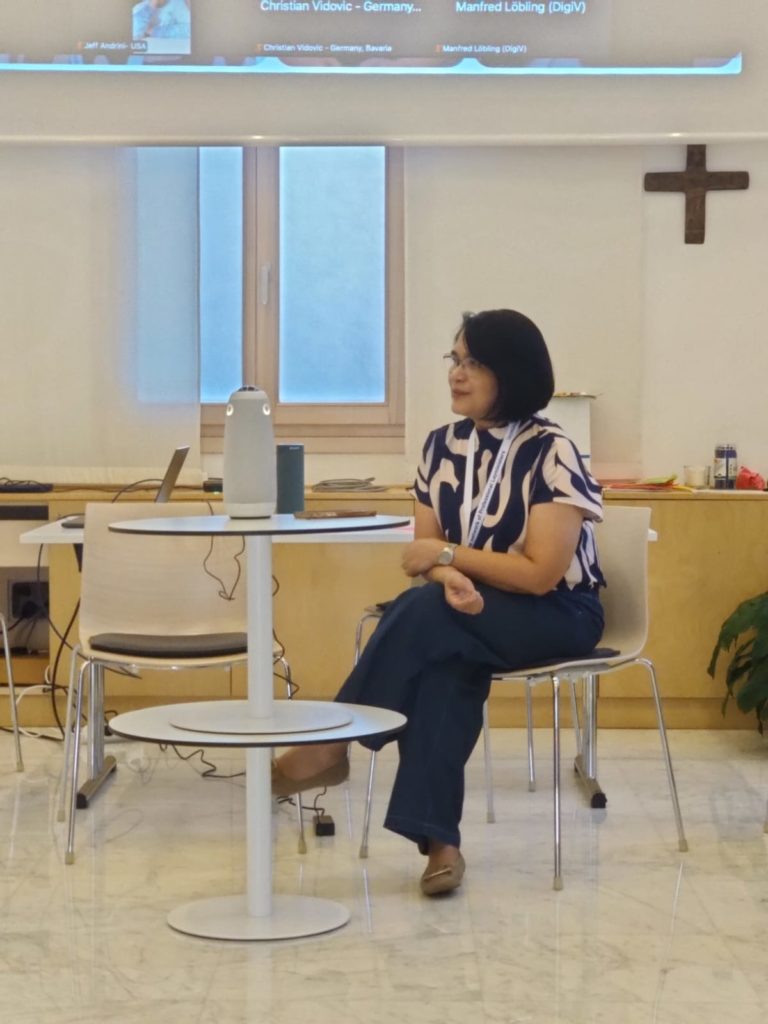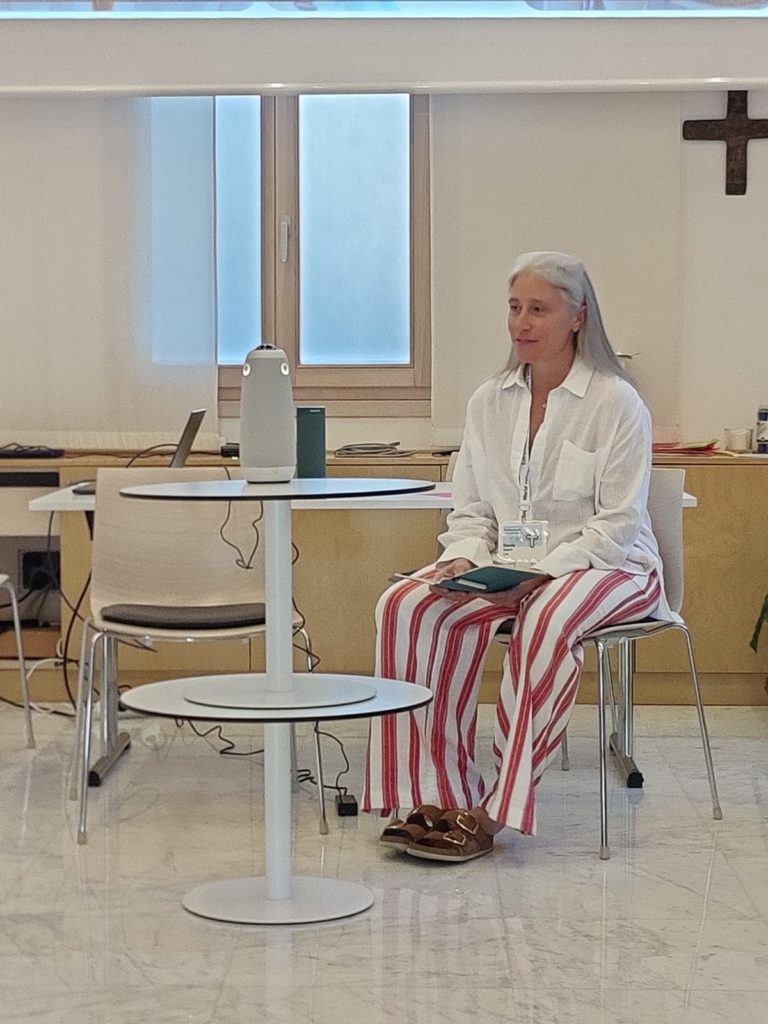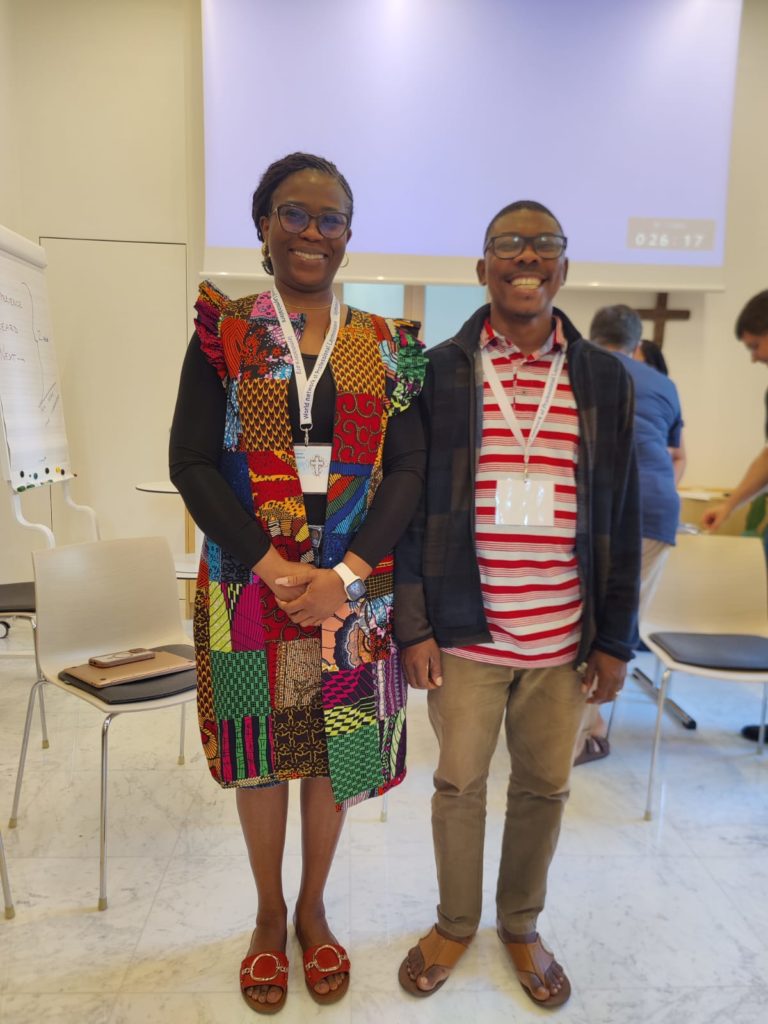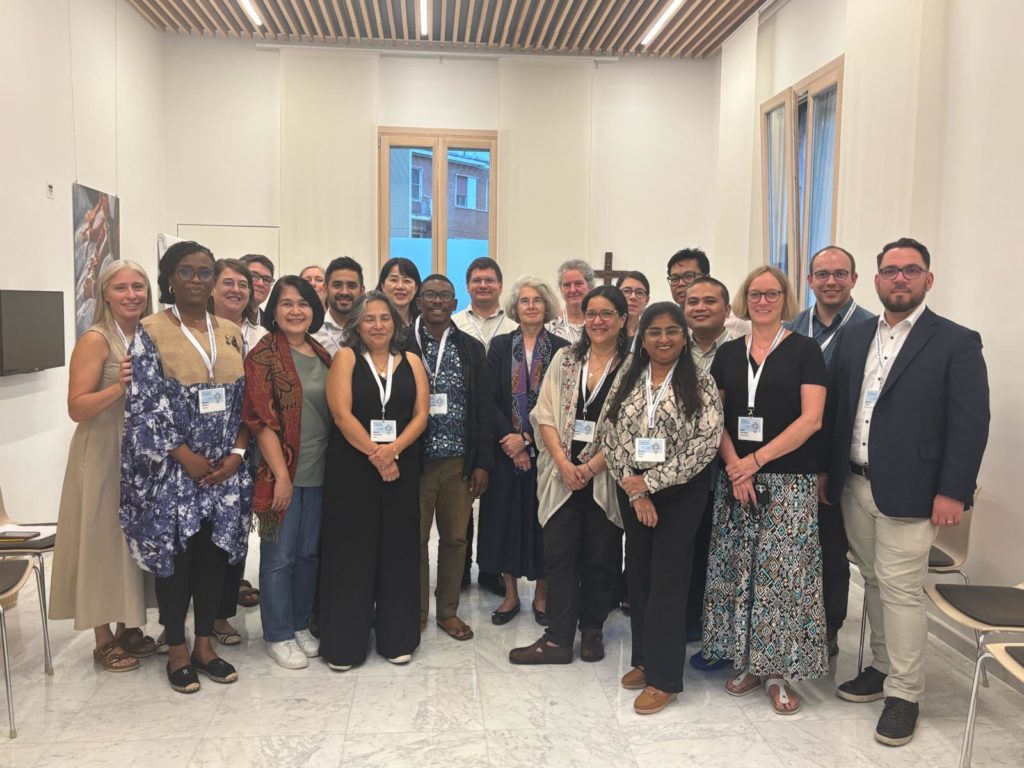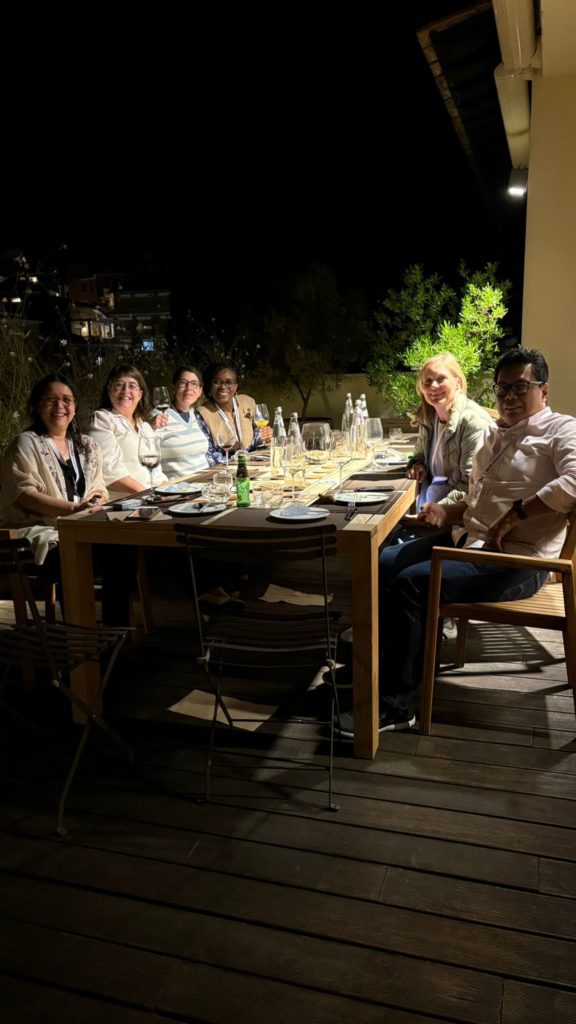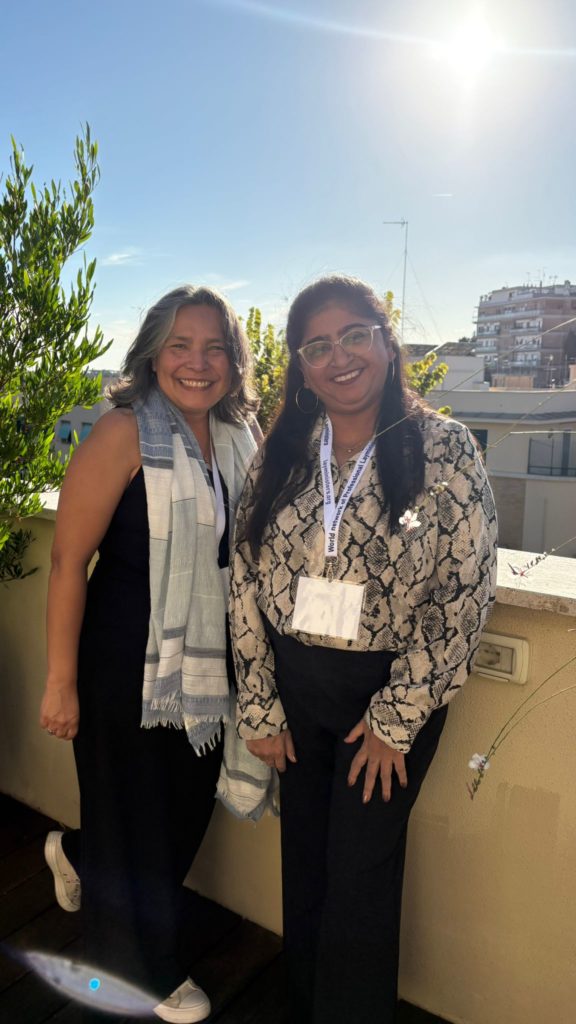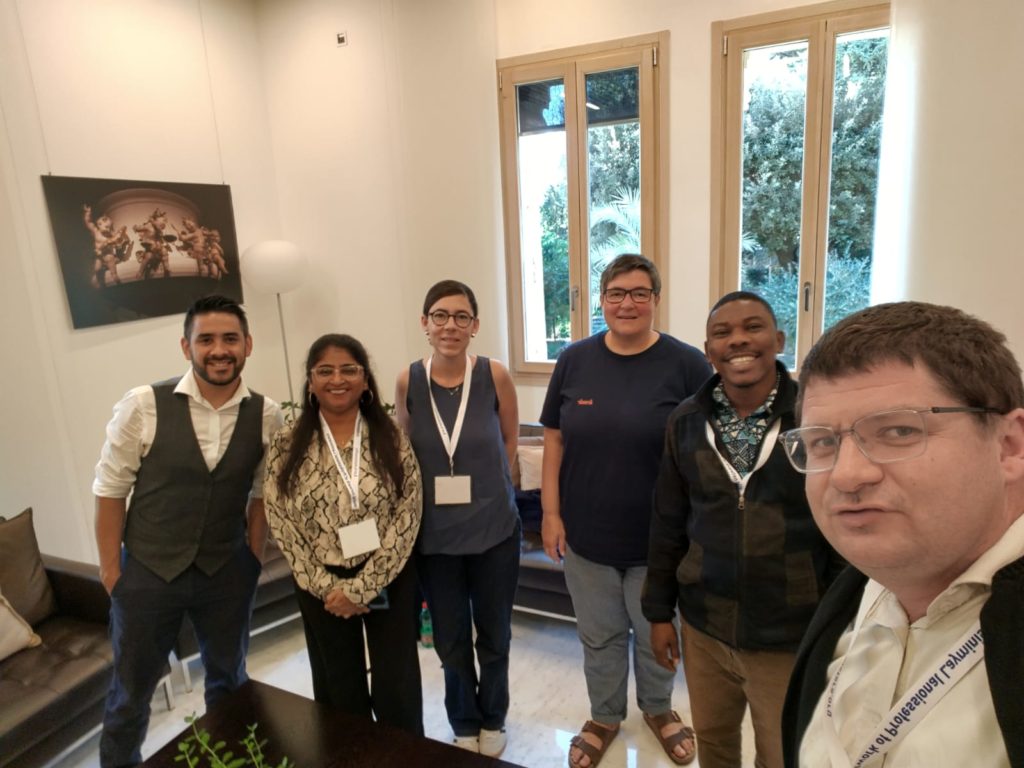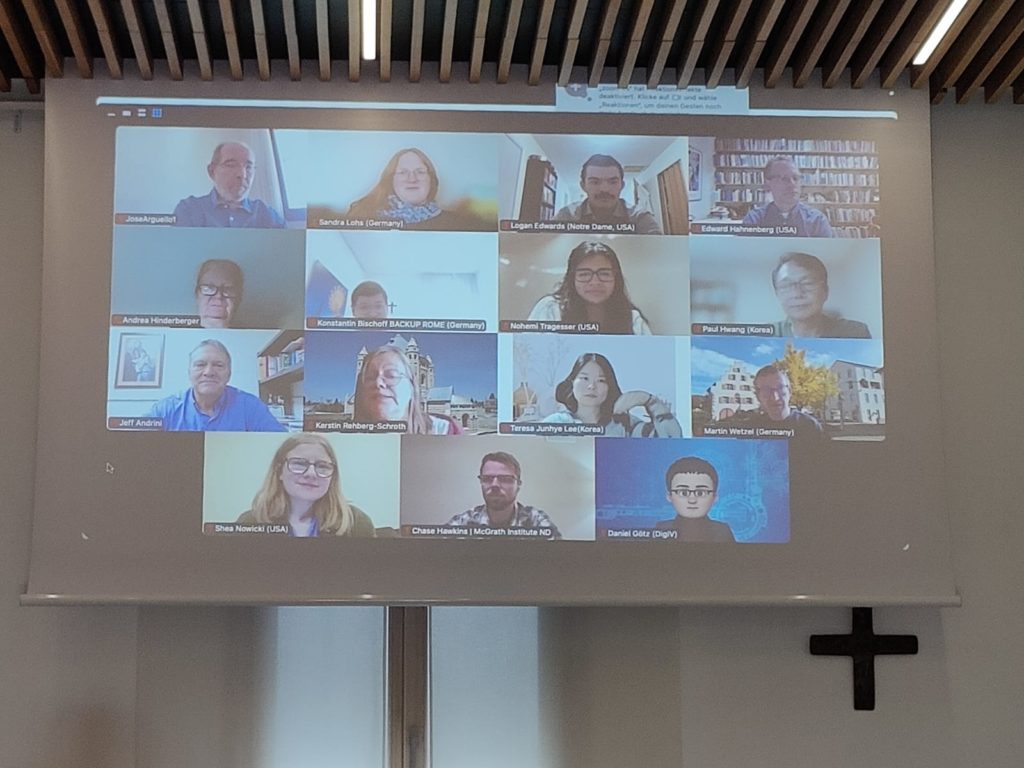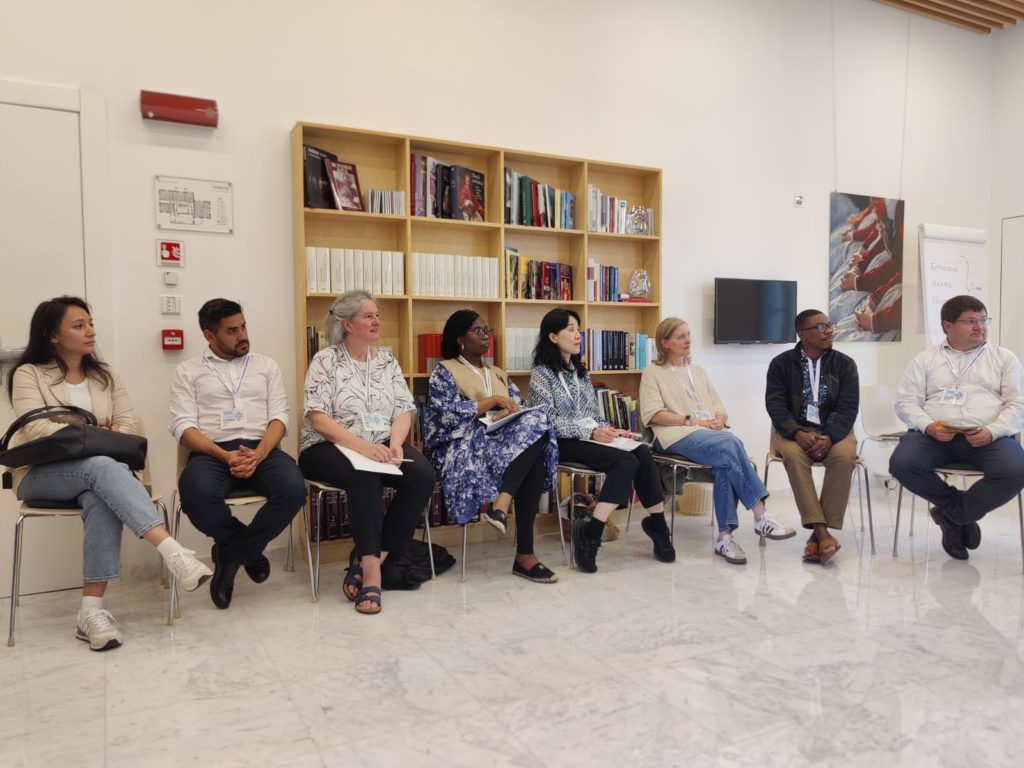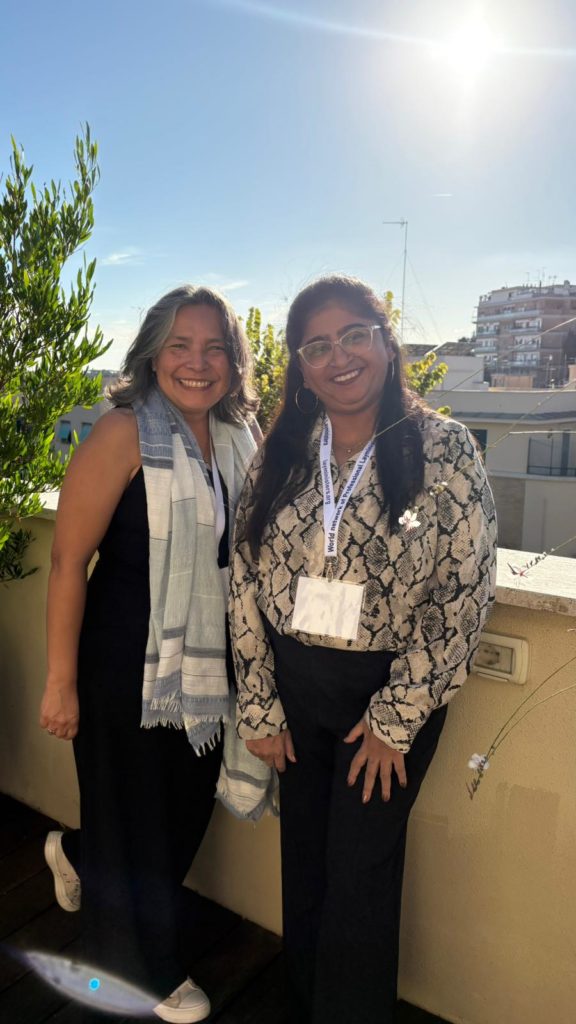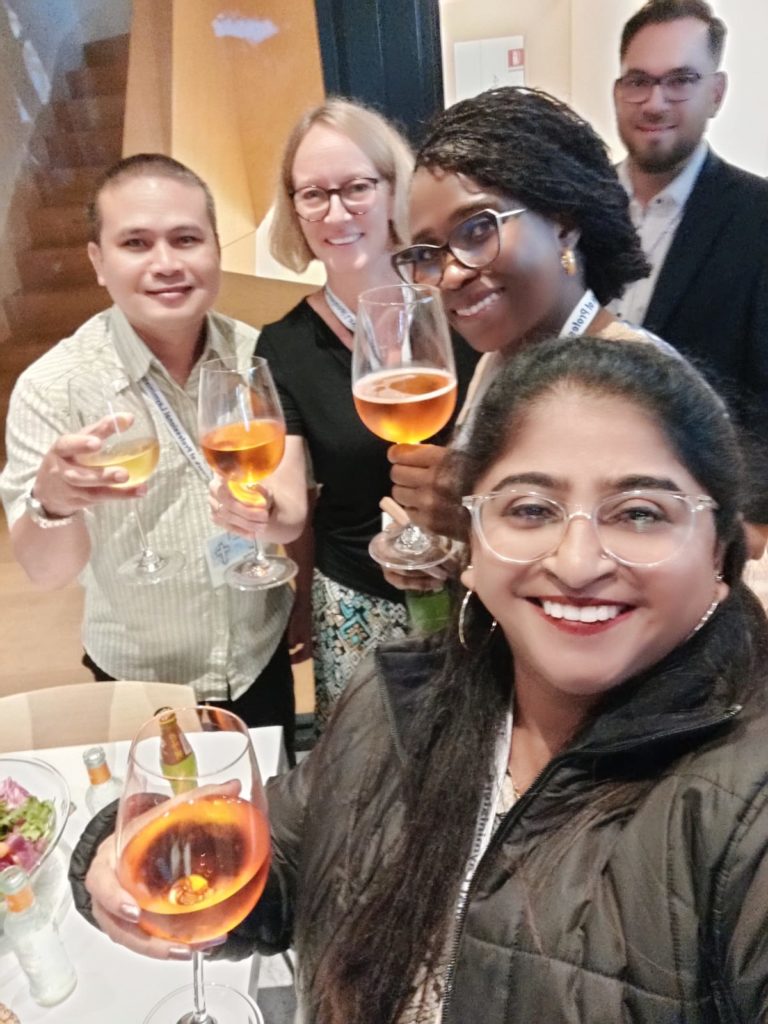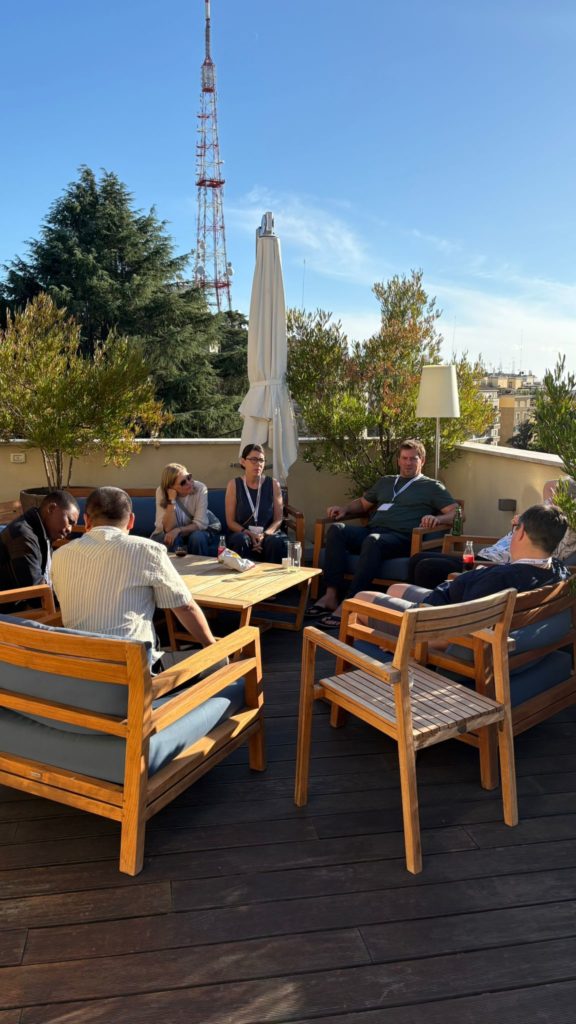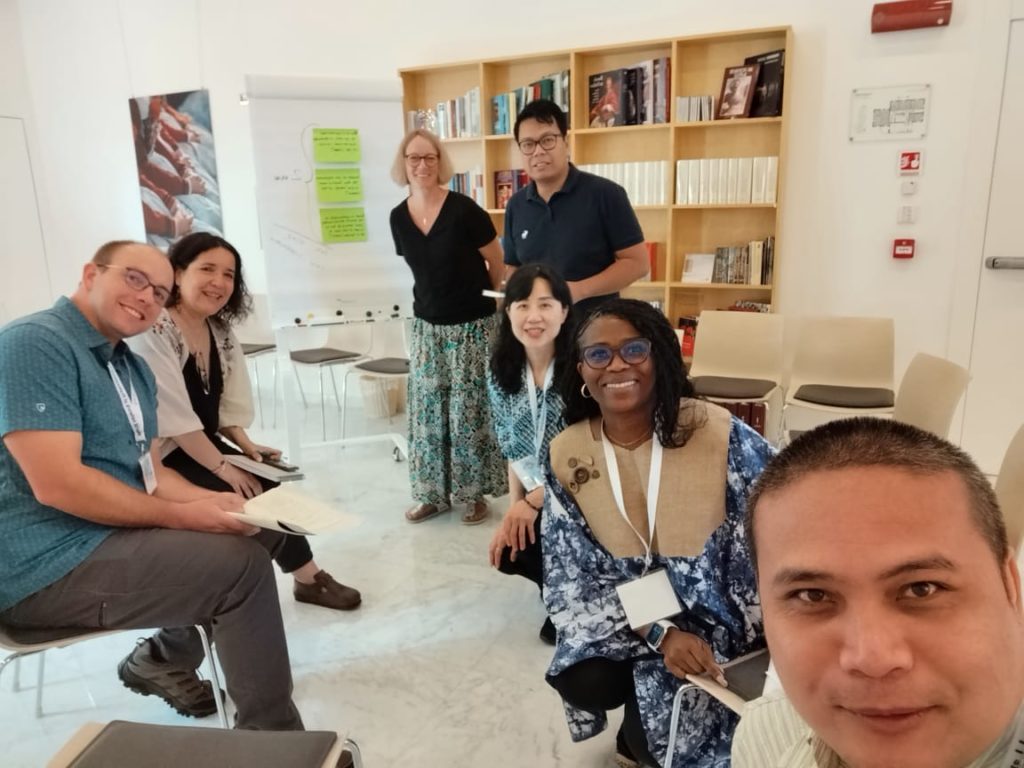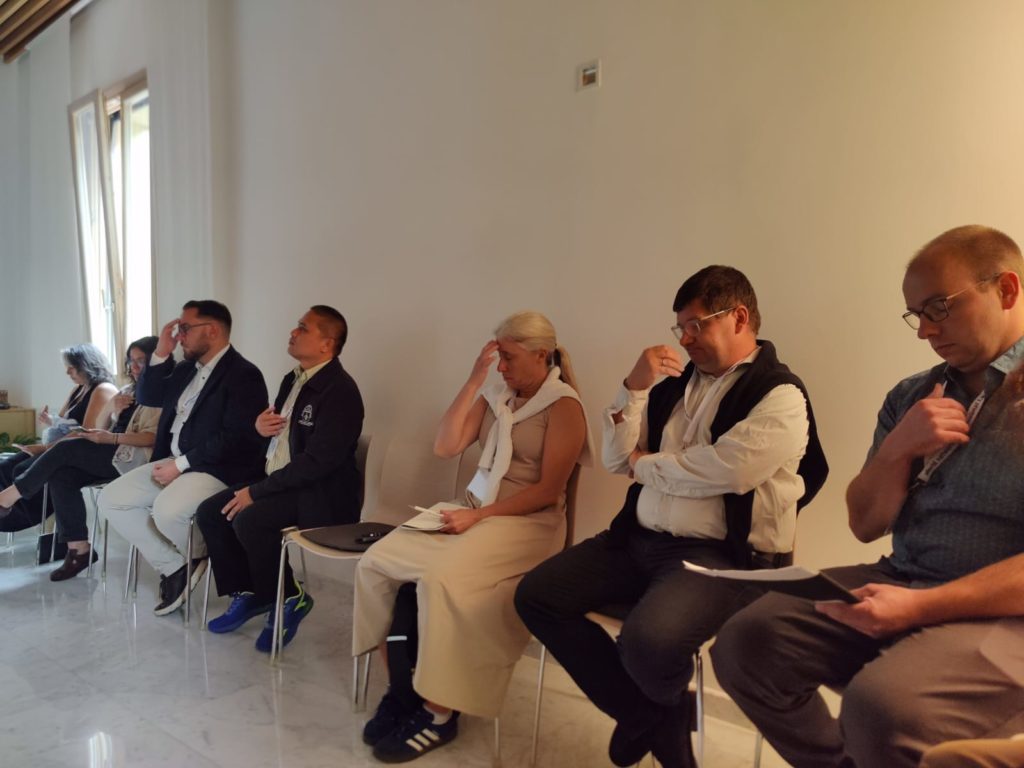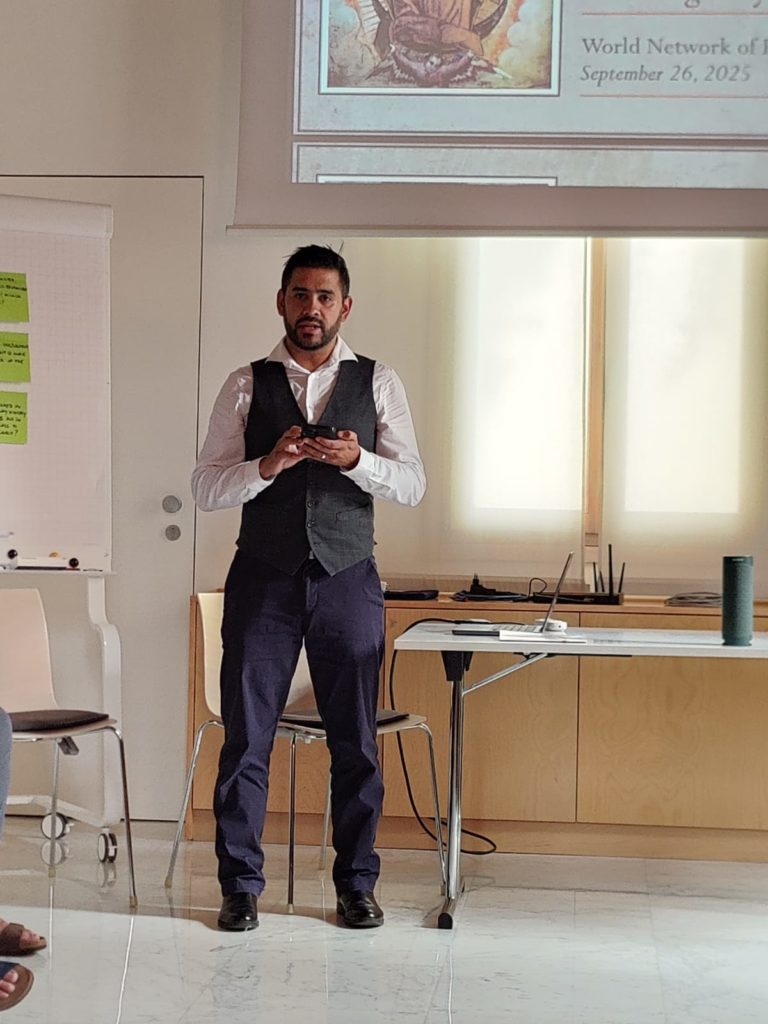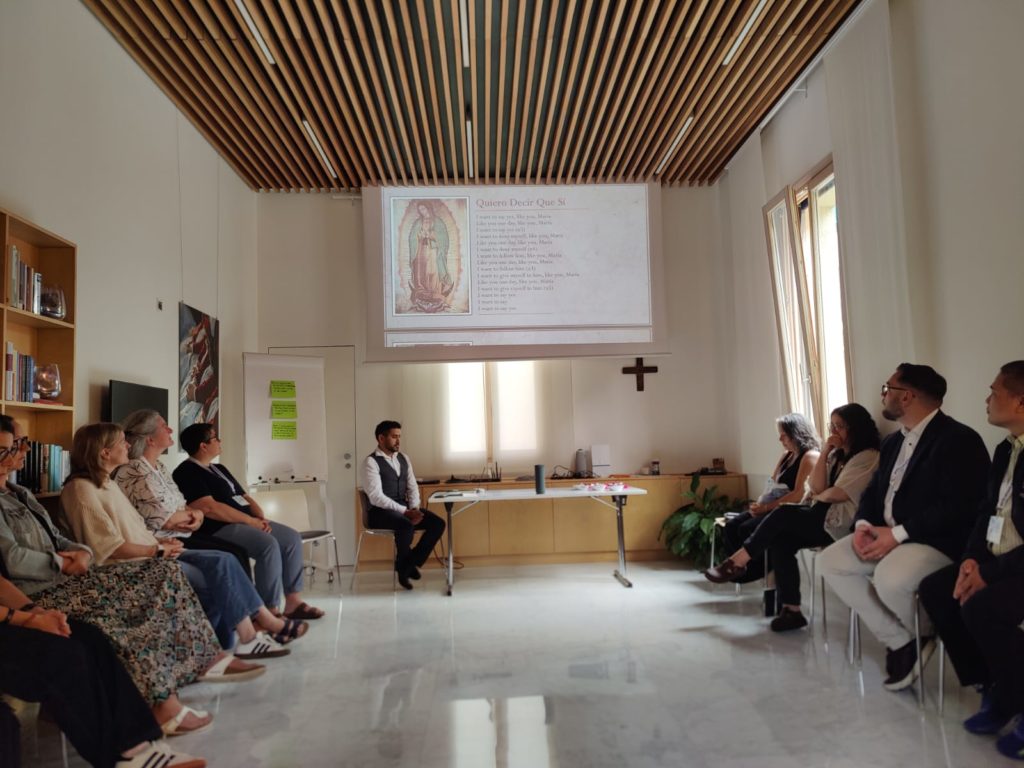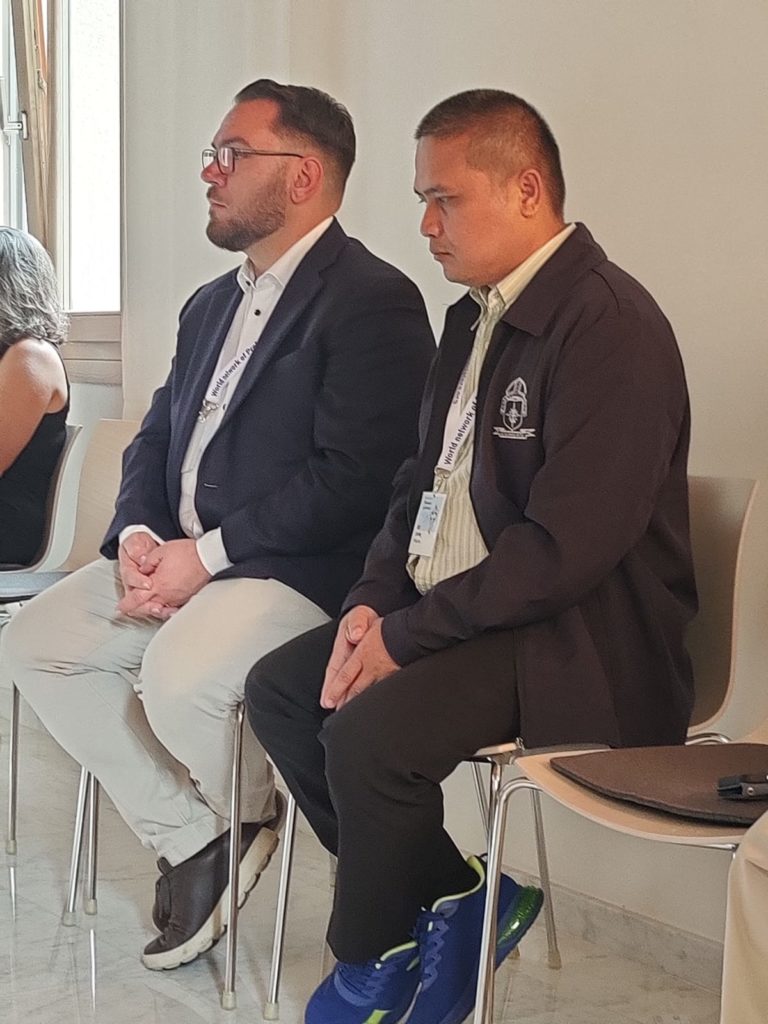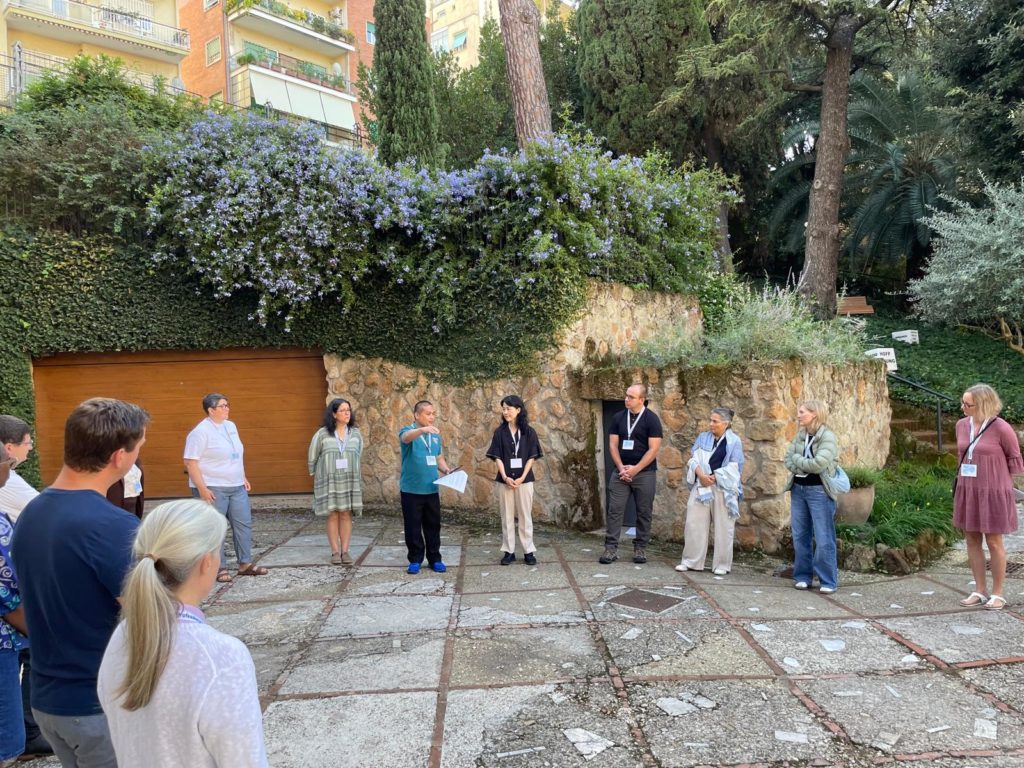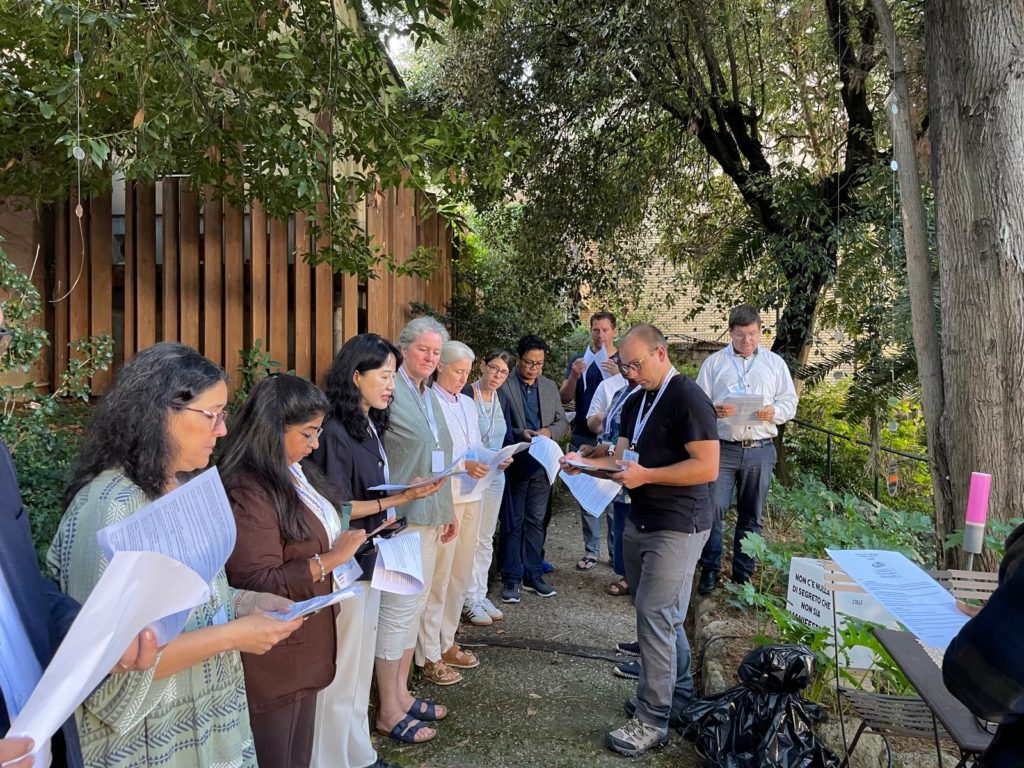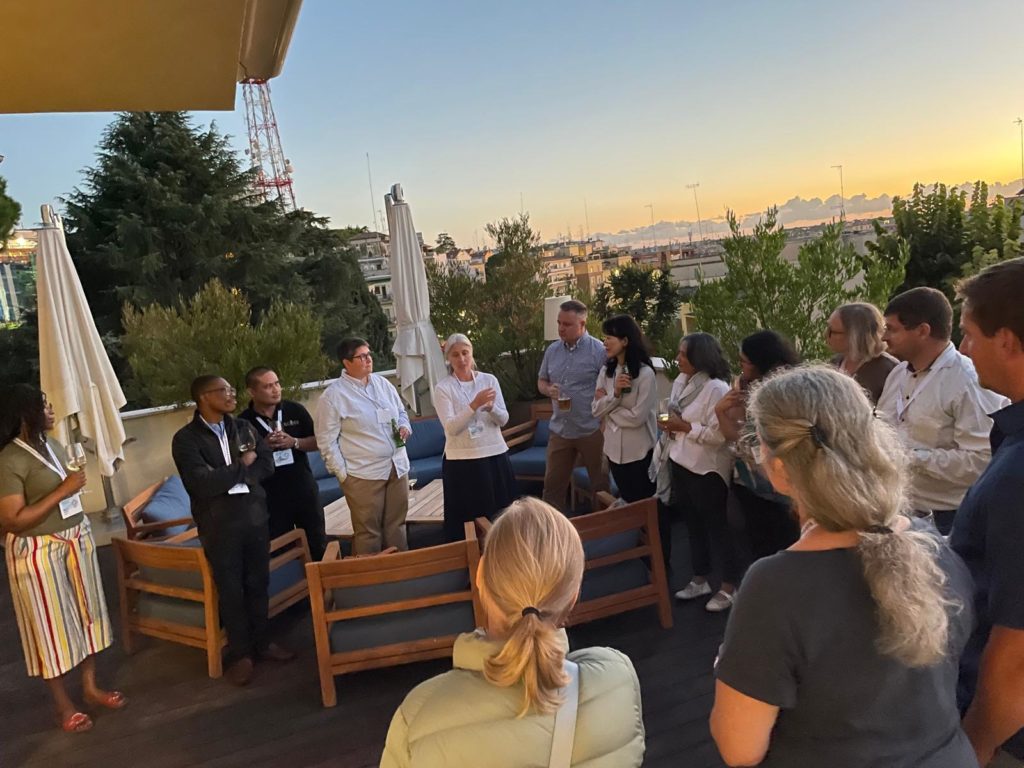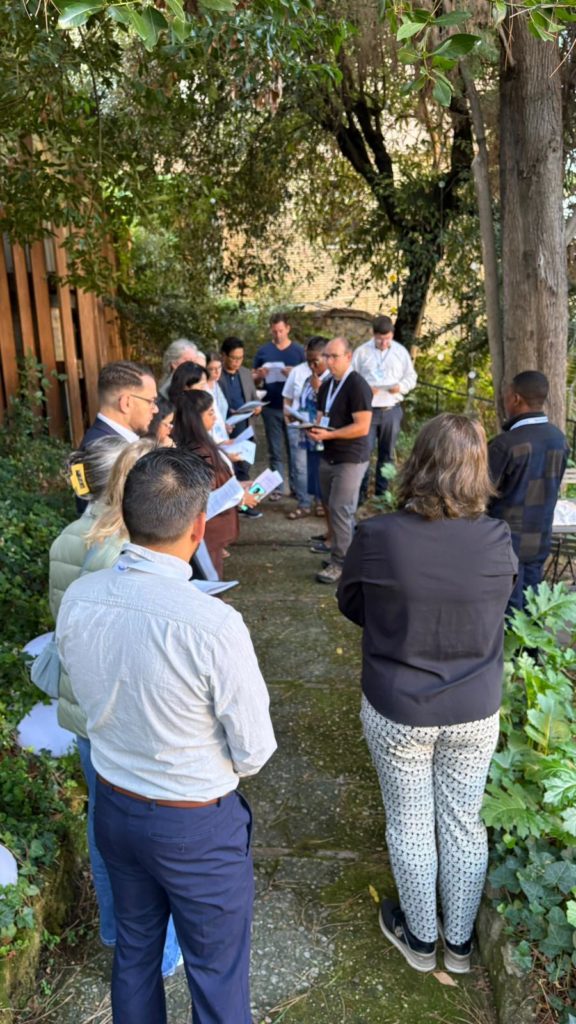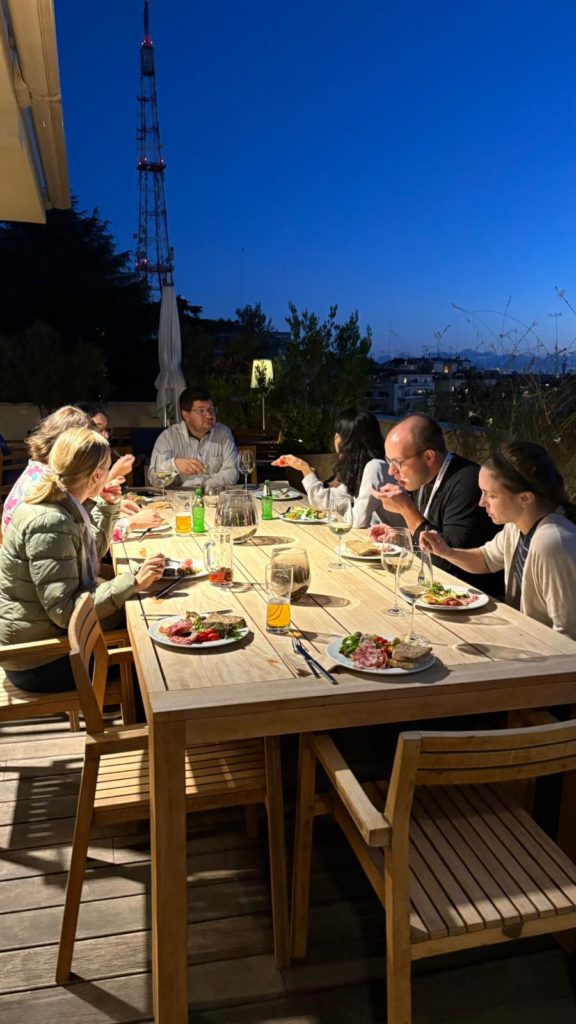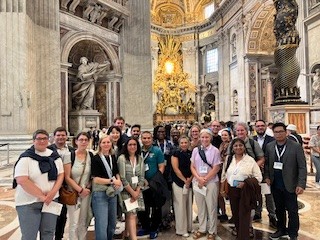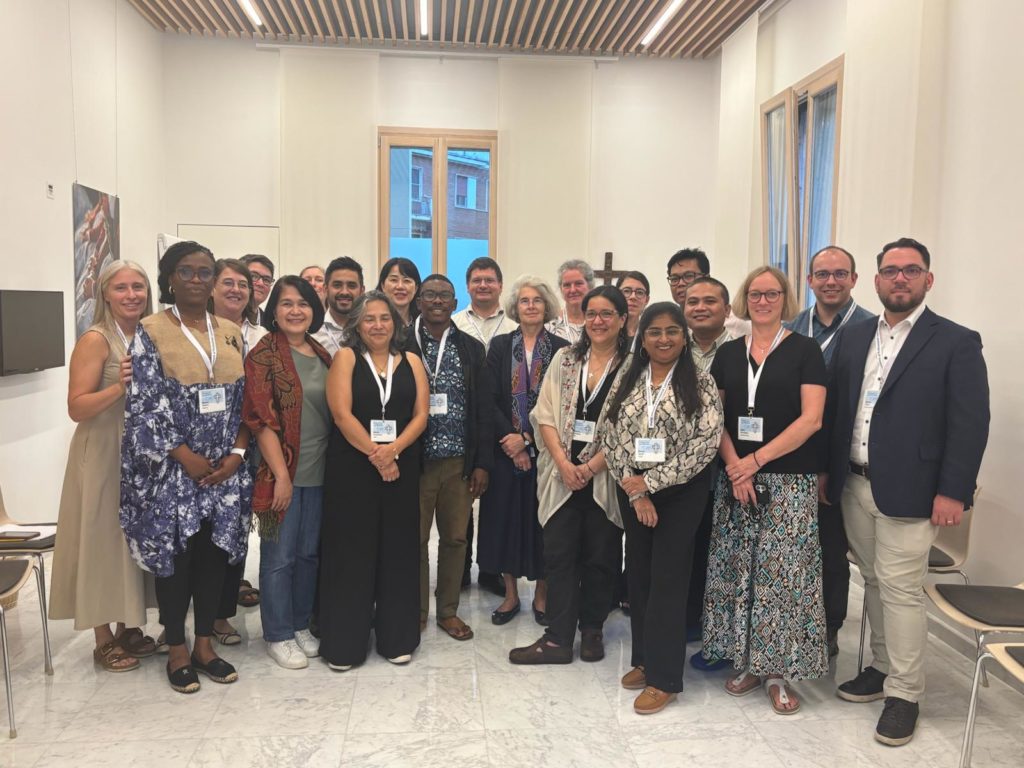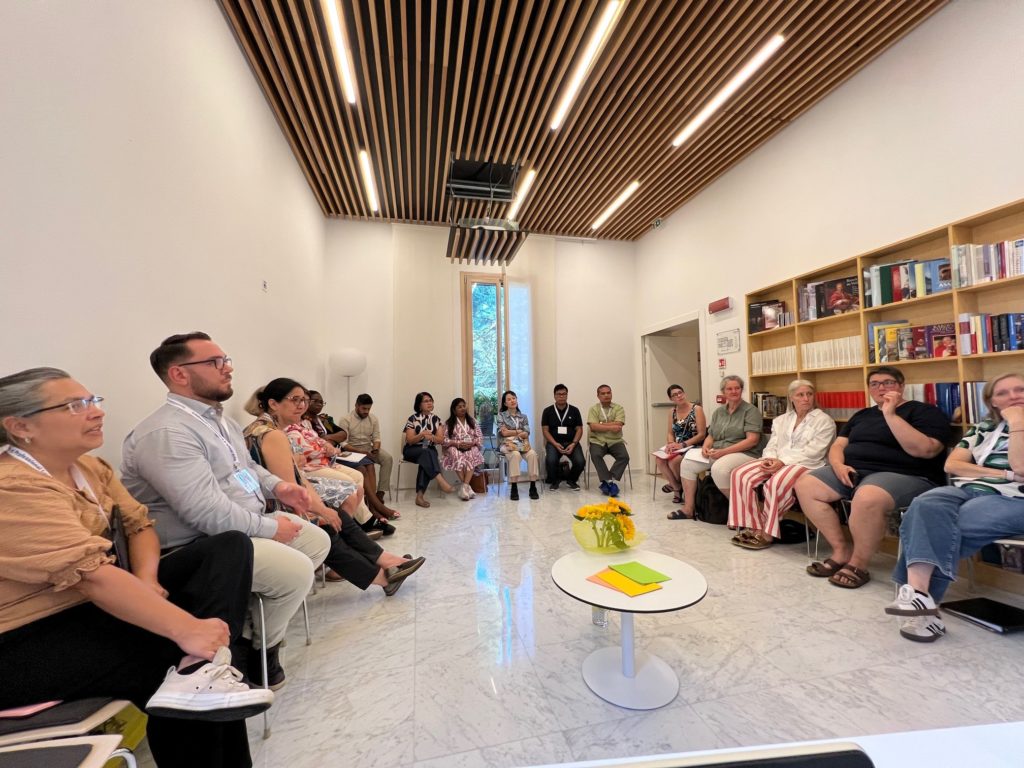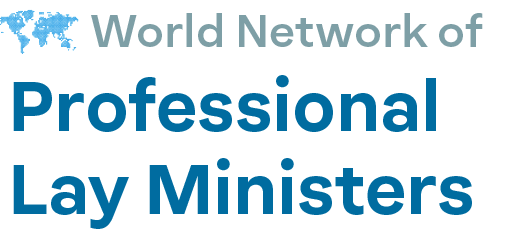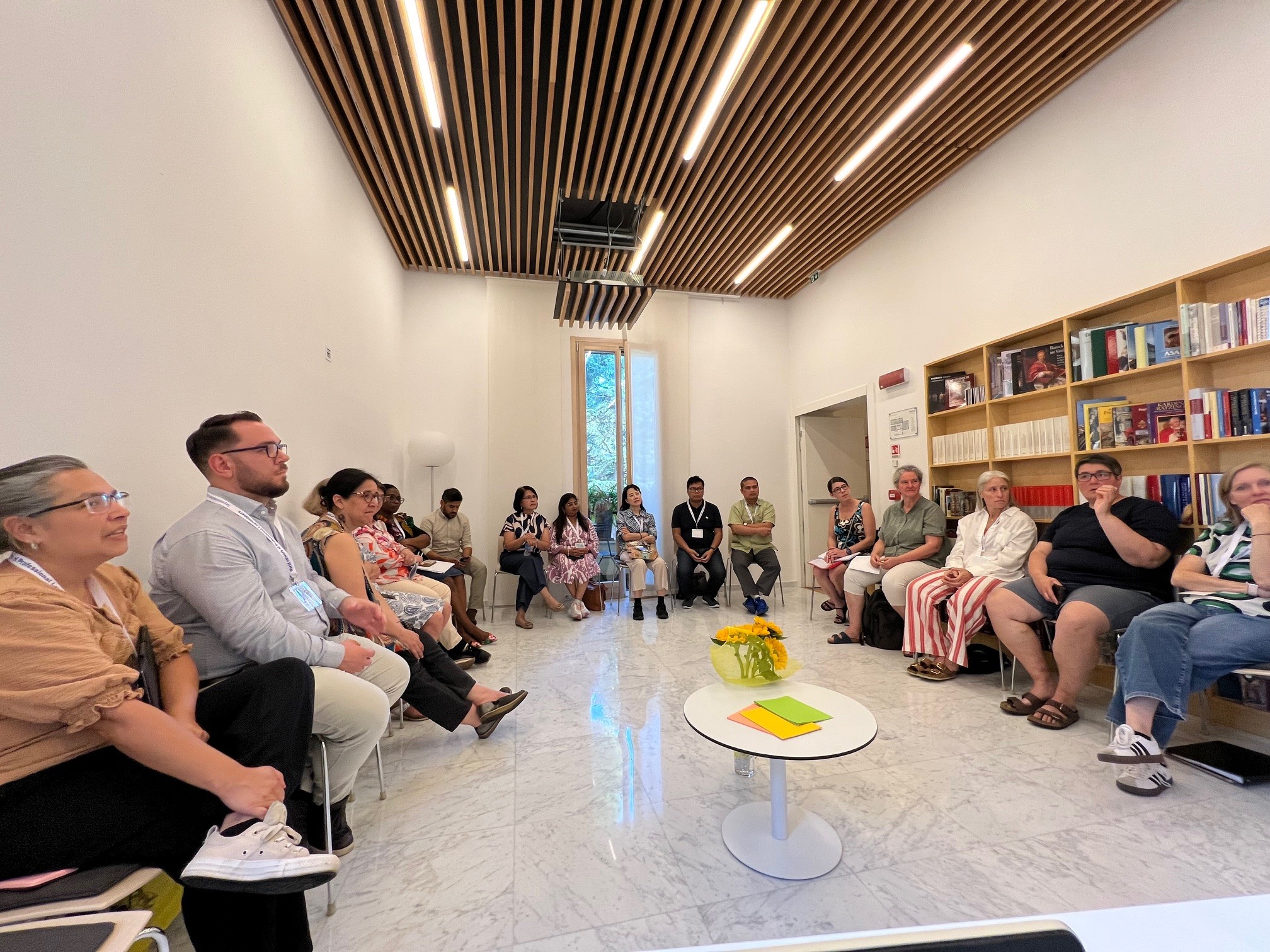Twenty-one professional lay ministers from five continents met in Rome, with an additional 24 who joined online, from September 24-28 to share their experiences of synodality. This international meeting was the third of its kind and promotes worldwide cooperation among this important group of Church workers.
The Third World Meeting of Lay Ministers was a contribution to the global synodal process of the Catholic Church and an important meeting to advance the implementation of the results of the World Synod in October 2024 from the perspective of lay ministers and to strengthen cooperation across national and cultural boundaries.
Hearing Stories about Synodality
On the first day of the meeting, participants exchanged successful examples of the implementation of synodality in their respective countries and cultural contexts in the worldwide Church:
- Many US dioceses have called diocesan synods to continue the work of implementing synodality. The feedback from people was particularly strong–many voiced feeling heard for the first time.
- A lay minister from Ghana spoke of the challenges and opportunities around listening in the synodal process. Many people on the streets don’t know about synodality.
- Our colleague from Nigeria is very enthusiastic about the good cooperation between laity and clergy. The only missing part is that the laity are not theologically trained.
- The Swiss delegation provided insight into the so-called “dual system” in their church, where financial resources are democratically managed by a lay committee and many pastoral decisions on different levels are made by teams and councils. They affirmed, however, that synodality goes beyond democratic structures.
- The Austrian lay ministers reported on numerous synodal consultations and meetings in the Austrian dioceses, on support at the national level for synodal cooperation, and also on the fears of leading persons in the Church with regard to synodal decision-making consultations.
- The colleague from Chile reported on the increasing distance of people from the Church due to abuse of power. The Chilean Church has had very good experiences with community building and living with poor and marginalised people, and this should also be emphasised again in synodal cooperation. Synodal cooperation is developing on different levels throughout the country.
- In Korea, Small Christian Communities serve as a vital seedbed of synodality, cultivating listening, discernment, and shared responsibility. Key challenges include limited engagement of clergy, insufficient lay formation, and the need to move beyond parish boundaries toward a prophetic witness in society.
- The sharing on the Philippine synodal journey highlights the vitality of Basic Ecclesial Communities (BECs) as the expression of synodality from below. In some dioceses, synodal consultations led to a renewed Vision, Mission, and Goals and a three-year Pastoral Plan empowering BECs. Despite challenges like clericalism and weak mechanisms, the dioceses persevere, guided by the launching of Philippine Synodal Implementation framework.
- The German delegation reported on the special situation due to the synodal path in Germany and the synodal process. A colleague reported on new leadership models with shared leadership between lay ministers and priests. Synodal participation is existing in youth Pastoral since decades.
- Also the online participants shared their various experiences.
Pilgrimage
In the evening, the meeting was continued with prayer and a pilgrimage through the Holy Door in St. Peter’s.
The Role of the Laity
The role of lay ninisters in the Catholic Church was the topic of discussion on the second day of the international meeting. The exchange began with Conversations in the Spirit:
- Affirm our baptismal call to serve the Church–that we are empowered by the Spirit to advocate for others. We know that lay people comprise the majority of the people of God.
- The synodal experience was one of deep listening and encounter where we received one another and shared joys and struggles with honesty.
- A clear takeaway was the experience of solidarity and togetherness–we as lay ministers desire to walk together with God and with the people we serve.
- We articulated a need to grow in solidarity through sharing resources and furthering our connection to one another, especially through praying for one another.
- We called for more development of the theology of the laity and lay ministers that is rooted in the dignity of our baptism.
Insight into the Synodal Process
Sr. Nathalie Becquart, Undersecretary of the General Secretariat of the Synod of Bishops, was a guest on the afternoon of September 26, 2025. She provided many insights into the worldwide synodal process and engaged in conversation with the lay ministers. Many ecclesiological topics were discussed, as well as the formation of the People of God, priests, and bishops. The focus was on the specific contribution that lay ministers make to the practice of a synodal attitude. It is not always easy for lay ministers to deal with the discrepancy between the pace and commitment of the many agents in the synodal process. Some find it too slow, others too fast. Since lay ministers share the vocational status of laity, they all recognize that their specific role is to accompany people on their journey of faith, drawing on their common life experience and cultural context.
Being Facilitators of Synodality
A special task of the lay ministers in a synodal Church is that of facilitator. On Saturday morning, the network therefore discussed the possibilities for accompanying and leading synodal processes in their respective Church locations and groups.
The network learned about facilitator and formation processes in the Philippine Church. There, the process begins with finding Jesus in “others” and seeing the Holy Spirit in the signs of the times. Dialogue with faith and culture in the respective context is practised. It is necessary to practise listening and also to listen to nonverbal signs. Many good insights into the decision-making process already exist in different cultures and among the population. These need to be incorporated into the synodal process.
A Network of Lay Ministers in the Midst of the Synodal Church
The contribution and position of lay ministers in a synodal Church was the topic of the concluding afternoon of the network meeting. We have a commitment to look for representatives from more countries and to arrange another meeting in 2026. An international preparation team will continue the work and take care fort he activities oft he network.
